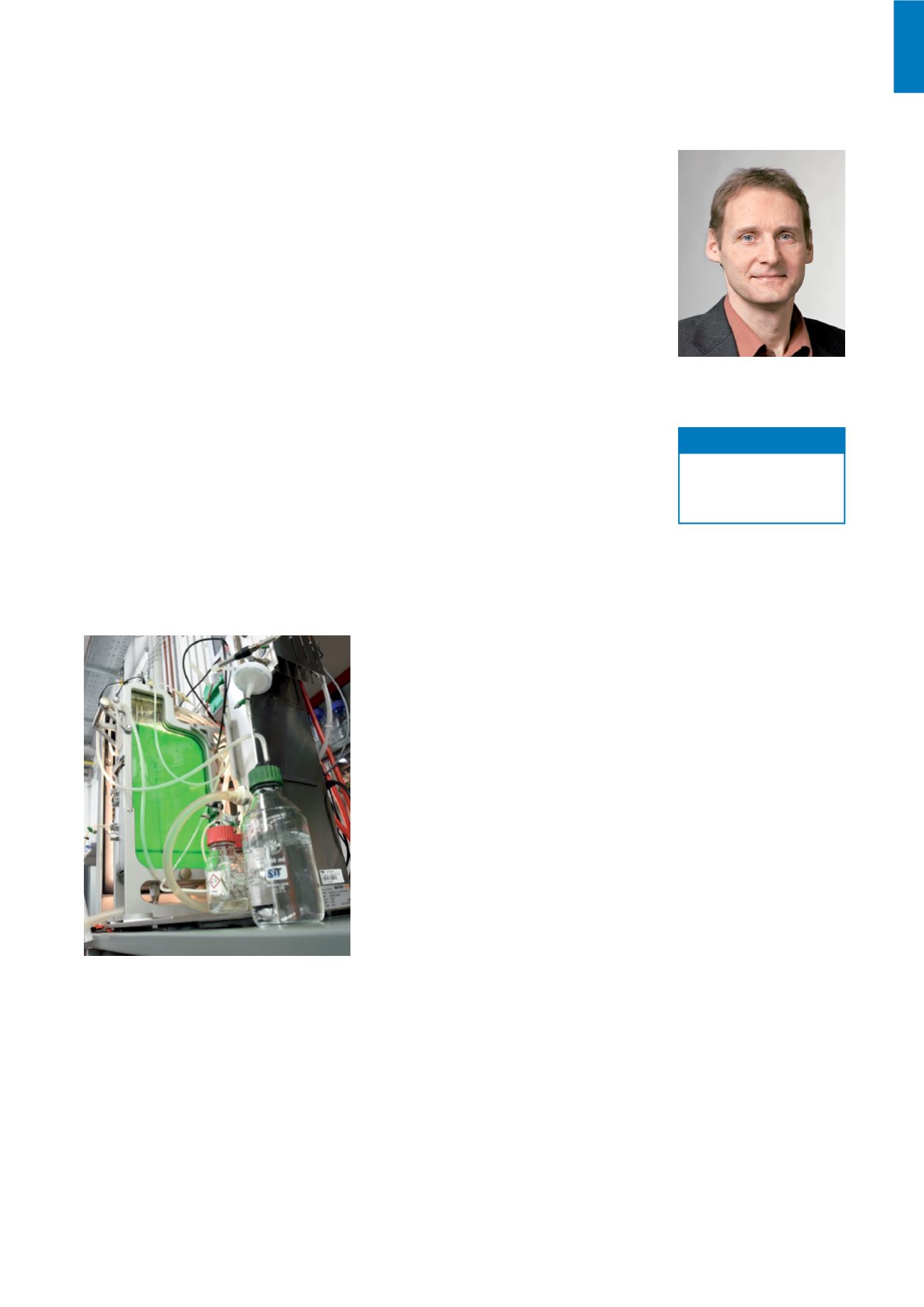

Systems Biotechnology
173
Systems Biotechnology
Model-based metabolic engineering for bacterial systems
Prof. Dr.-Ing.
Andreas Kremling
Fundamentals for Experimental Analysis and
Mathematical Modeling of Cellular Networks
Regulation of transcriptional and bio-
chemical processes in a bacterial cell is
essential for survival in changing environ-
mental conditions and understanding
the events taking place is pivotal when
using bacteria in industrially interesting
applications. Research of the Systems
Biotechnology Group targets different key
regulatory devices, such as the phospho
transferase system in Pseudomonas
putida or the ComRS two-component
system in Streptococcus mutans. The
experimental information derived either in
the group’s own laboratory or by collabo-
ration partners gives rise to mathematic
models that contribute to a better under-
standing of cellular processes.
Another research focus is on the
establishment of a co-culture between
a photosynthetically active organism
extruding sugar molecules together with
heterotrophic organisms capable of pro-
ducing industrially interesting compounds.
To this end a photobioreactor is employed
which allows cultivation and collection of a
vast amount of data used to describe the
population-based variations in the overall
process.
Projects
n
e:biofilm, BMBF e:Bio initiative; regula-
tory influence of the PTS on physiology
and biotechnological production with
P. putida, DFG
n
Systems Biotechnology Group combines methods from engineering
sciences, microbiology, and computational sciences to improve bio
technological processes.
www.biovt.mw.tum.de/fg-systembiotechnologie
a.kremling@lrz.tu-muenchen.dePhone +49.89.289.15761
Contact
The application of deterministic models
is still dominant in systems biology. It
is assumed that taking averages from a
stochastic single cell description will result
in comparable results. We could show that
this is not true for special cases, particu-
larly when gene expression is considered
in which the number of proteins depends
on bursts in mRNA synthesis. These
findings now allow broader possibilities in
designing strains for heterologous protein
production.
The year was further characterized by
activities with partners from abroad. One
member of the group visited Dr. Tom Ellis
from Imperial College in London to get
a deeper understanding of advanced
methods for synthetic biology. Applying
these new techniques will allow us to
improve our production strains in projects
related to Escherichia coli. A further colla-
boration with one of the leading groups in
Metabolic Engineering has been esta-
blished with James Liaos’ group in Los
Angeles, California. J. Liao is a pioneer in
the development of theoretical concepts
in biotechnology and we will apply and
extend his methods in our projects.


















